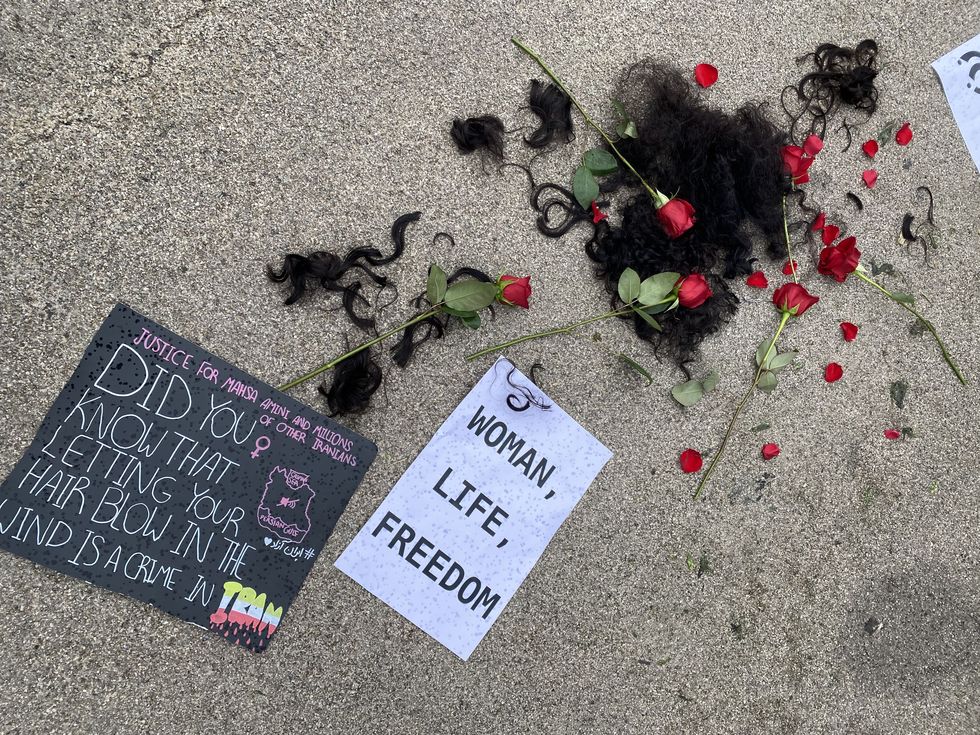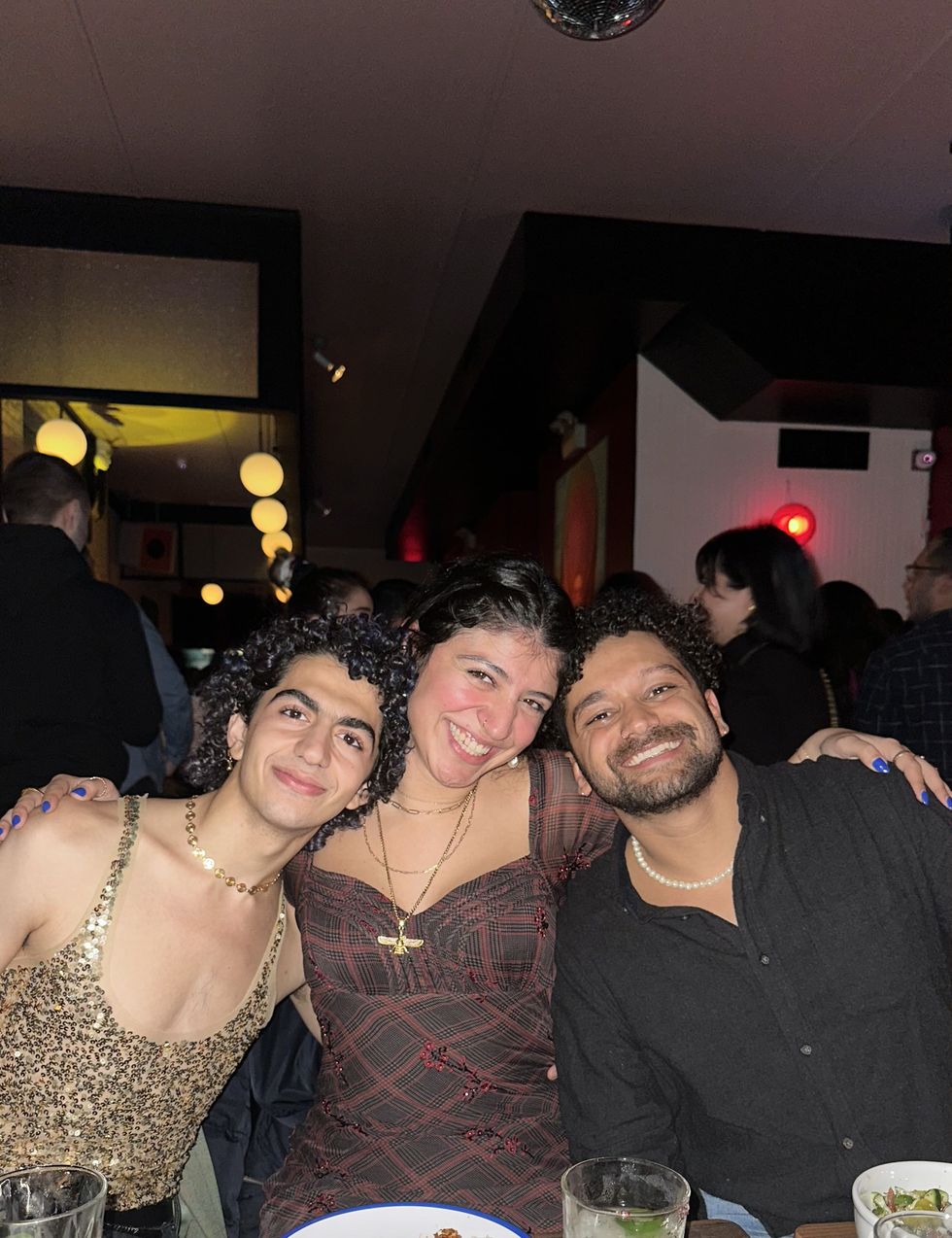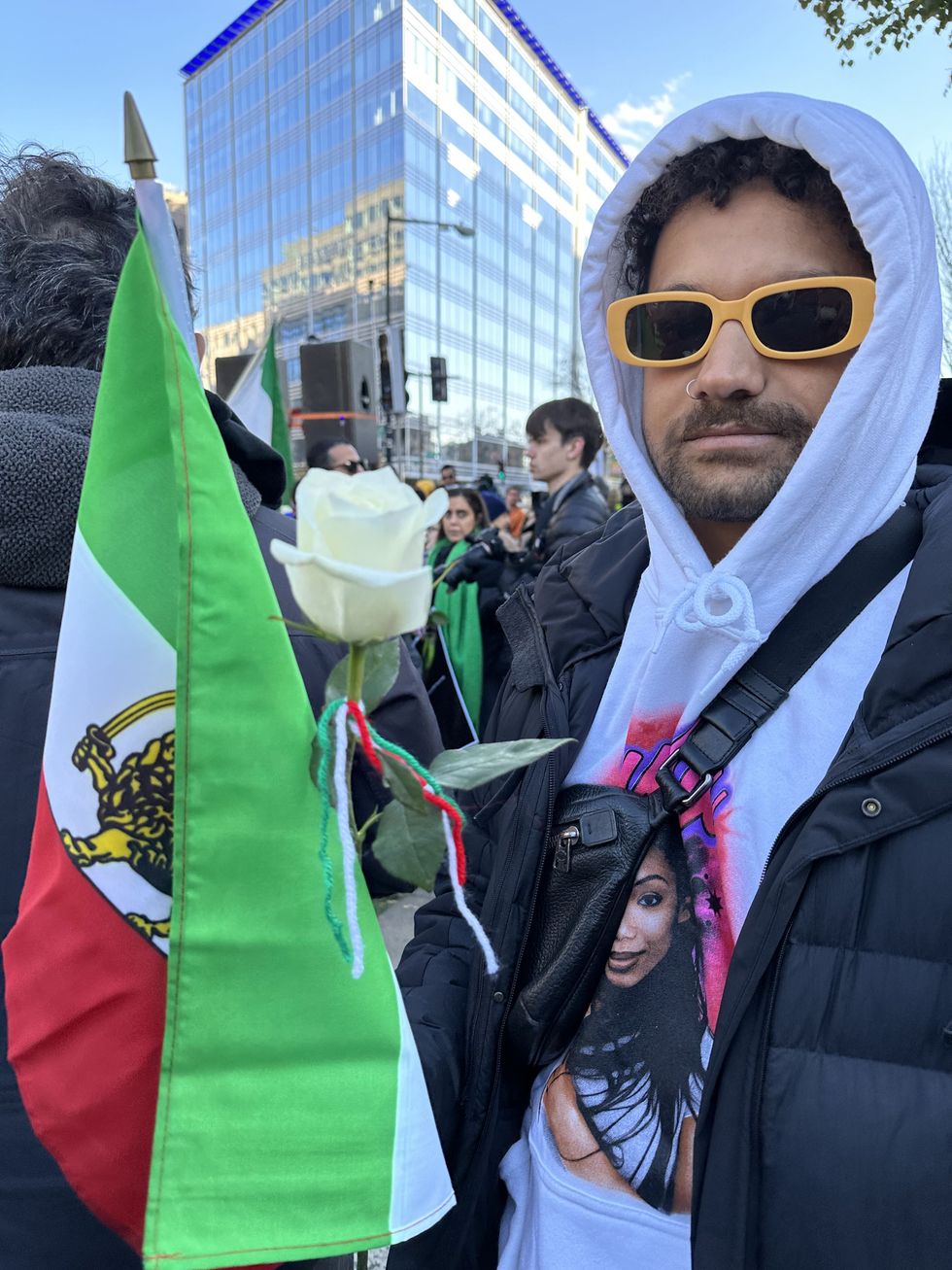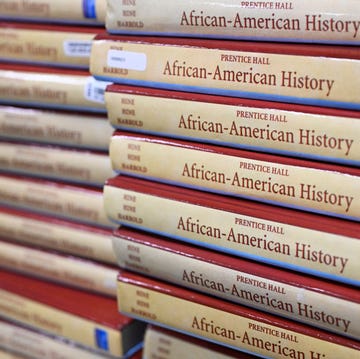On September 16, 2022, a 22-year-old Iranian Kurish woman named Manhsa Amini died in custody, after being badly beaten by the morality police. Her death was the spark that ignited a revolution, inspiring Iranians to take to the streets and protest for democracy and basic human rights. But for nearly seven months, Iranians across the diaspora have watched helplessly as the Islamic Republic began arresting and publicly executing over 15,000 demonstrators. As a result, they did what Iranians do best: rallied together. Families who survived the revolution of '78 picked up their picket signs and megaphones, and first-generation Iranians who grew up isolated from their cultural heritage connected with community members for the first time.
Today, Iranians across the globe trepidatiously welcome the year 1402, unsure of what the next will look like for our country and people. Called Nowruz, the Persian New Year is a day traditionally symbolic of renewal and a fresh start. In the days leading up to Nowruz, participants will tidy their homes and purchase new garments, all gestures of starting the year with a clean slate. They’ll also prepare their haftsins, a ceremonial table filled with seven symbolic offerings that start with the letter “S.” On Charshanbeh Soori, the Tuesday night before Nowruz, Iranians gather to dance and jump over fire, in order to leave the sins of the last year in the past. At the hour of the equinox, families gather around the haftsin and say a prayer for the coming year, then share a feast, commonly white fish and herbed rice. The following days are then spent visiting relatives, loved ones, and community members. During these visits, elders will often give younger family members eide, small gifts or money, to start the year prosperous. The Nowruz period culminates in Sizdah Bedar, when Iranians picnic together and release their sabzi into water, symbolically returning to nature and making a wish.
Since the Iranian people have suffered so much lingering loss, celebrating Nowruz has become another act of defiance. To explore the dissonance between rebirth and sacrifice, I spoke with two Iranian “families,” one by blood and one chosen, about how they plan to celebrate the new year while continuing to heal and honor those who have given their lives, so that we might one day be free.
More From Harper's BAZAAR

Nini, 79, remained in Iran after the revolution of ‘79. Her daughter, Leila, 55, left the country for the United Kingdom. Her granddaughter, Kiana, 23, was born in the United States.
Nini: Growing up, Nowruz was so much fun. Very traditional, because of my father. We had to wear a new dress, get “eidy” from the relatives, and see so many cousins and aunts and uncles. We had a very very big haftsin.. Even if the new year was three in the morning, we had to get up and get the new dress on and sit by the haftsin.
Leila: When I was little, everything was activity based, a day of fun with my mother. But as a country, we would all celebrate together. Going in the streets and shopping were all very festive. If you went to Bazaar Tajrish, you would see everything. At the moment of Eid, my mother would always light candles and read from the book of Hafez. Not the quran. And we’d immediately go to my grandmother’s for tea. For days after, we would visit our elders. I tried to do it a few times with my family here, but it was never the same.
Kiana: We did celebrate quite a bit, though. Dinners at ours. Sabzi polo mahi. We’d watch cartoons in farsi. We’re part of a big community here, one that would have parties for the young kids and put on performances. People made a big effort to get their kids involved. Then, as we got older, we participated less.
Nini: For my own children, I tried to bring spring into the house. I put out so many flowers and the branches of trees.
Leila: On Nowruz, I made sure of two things. The first was that the kids were wearing something new. Even if it was a new pair of underwear or socks. And the second was that we would eat fish. But the calendar doesn’t give us vacation or a day off for nowruz. So my husband works. The kids would go on spring break.
Kiana: Then I went away to college and made Persian friends for the first time. Every year, we’d host a Nowruz dinner. We realized that it’s now out of our parents’ hands to involve us in tradition. The onus is on us.
Nini: I had lots of hope that maybe this year, Nowruz would be celebrated in a big way. But to tell you the truth, I no longer think so. Everybody will have celebrations. Even people who are very short on money right now will still try to buy new clothes for their children and make everything look festive. But I don’t think the expectation we had that we would be “azadi” (free) by now will happen for a while. I’m sure it will happen, but later.
Leila: This revolution is run by a lot of younger people. They’re very gutsy. But we have a commonality in that everyone is united against evil. Demanding freedom. Anything that happens in your home country unites you. Certain songs, certain smells, certain flavors, will remind you. They just made me cry. I want to pass those memories down to my family. I told my daughter that I was going to protest. I never really asked her to come with me, but she was there. I was a little bit surprised that she was so willing to come and make posters. We’ve attended a lot of protests together, as a family. Now, she’s started going without me.
Kiana: Well, that’s the least I can do. We can opt in and out. But my friends in Iran, that’s their life. There’s no opting out. When I think about the revolution, I feel a sense of guilt. It feels wrong that I’m here, watching Instagram Stories and attending protests, but not in any imminent danger. I feel like I’m not contributing enough. It doesn’t even compare to what my mother went through as a child.
Nini: I started my sabzi yesterday because I use lentils, which takes a little longer, but is beautiful. We have also started our spring cleaning of the house. Next week, I will start to make the haftsin.
Leila: Three weeks ago, my mother was so excited to tell me that she went shopping and didn’t wear her head scarf. But yesterday, she told me she’s wearing hers again. She’s scared. Because the economy is so bad, I’ve sent money to buy Nowruz packages with food for about 20 families. That money, the food, goes a very, very long way for their children. In 1402, I’m thinking of the children of Iran.
Kiana: I’m hoping for an end to the violence and freedom for the people protesting.
Lilia, 26, grew up in Virginia, with little connection to her Iranian heritage. Arash, 27, was raised in Southern California, in a small Iranian community. Milad, 26, spent his childhood in Iran, before moving to Dubai. The three now live in New York City and met in the aftermath of the current revolution.
Lilia: I was raised in an Iranian household, but my parents’ version of assimilation was very separated from Iranian culture. My dad didn’t want me and my sister to learn farsi. Day to day, I felt very disconnected.
Arash: Once I went to school in the bay area, it was always “Well, how Iranian are you?” That strange purgatory of not knowing how much to lean into the American culture you were brought up in or the Iranian culture you grew up in. And once the revolution was underway, there was this need to connect.
Milad: I moved to New York when I was 18, for college. I felt like there were no Iranians here. I didn’t know any. There was maybe one person in my school. When the revolution started, I felt shocked and bamboozled by how many Iranians there are! Living in hiding!
Lilia: Nowruz was the one time a year I felt Irooni. My family canceled our plans for a week. The house would smell like flowers and there would be music playing and my mom would be in the best mood.
Arash: Nowruz was always popping off at my house. People would invite their friends and their friends’ friends. I mean, people would be mobbing out for the Charshanbeh Suri party. All these fire pits and singing songs. We’d build dmx jumps and jump over the fires with our dirt bikes. And we didn’t have to go to school the next day. It was exciting. When I went away to college, it was one of the first moments when I missed my family.
Milad: I grew up in a very close-knit family, almost unbearably close. We’d dance. We’d eat together. It was a very happy time. And setting up the haftsin was very fun. My mom really would let me take over and every year, I tried to outdo myself. On Charshanbeh Suri, we’d all go to the desert outside of the city and there would be huge bonfires. Sizdabedar there would be a big picnic, we’d tie wheatgrass and make wishes. But I lost all of that moving here.
Lilia: I met Arash through mutual friends. He was my first Iranian friend [in New York ?]. He sparked so much of the cultural identity journey I’ve been on, through eating his cooking and meeting his family. When the revolution began, we both felt tortured by everything going on in Iran. We started attending protests, but really felt that lack of community.
Arash: It sucks, being here and being unable to do anything about it. Ultimately, all our protests do is unify us and mobilize a front internationally for solidarity. But we can’t send resources, we can’t help.
Lilia: There was a piece missing [from the demonstrations]. There was no organizing force, no centralized place to convene and talk. So, the two of us decided to make a flier and put out an open call invitation to Masquerade, the Iranian tapas bar [in Brooklyn]. We invited any and all Iranians. The hope was that we could just gather and be with each other in an emotional sense. To cultivate community and hold one another. And meet people! Talk to other Iranians. And over a hundred and thirty people came. And that’s how we met Milad. An older Iranian woman came and asked us “why are all you young people acting like you’ve never met Iranian people before?” And I had to explain to her that I hadn’t.
Milad: I’ve been obsessed with freedom from a very young age. So, when the revolution started, I wasn’t surprised. I never doubted that we would be free again, I just knew it was a matter of time and sacrifice.
Lilia: A week before Mahsa Amini was killed, I started taking farsi lessons. I wanted to know my homeland so deeply, but then I saw it on fire. It’s been challenging to grapple with a lot of the guilt I feel for not being tuned in from the start, for not being able to speak farsi, for not asking my parents more questions when I was growing up. But I think that’s even more of a reason to take action. Guilt can be a catalyst for change. I don’t think we should sit and stew in guilt, but I do think it can move us toward empowerment and progress.
Arash: We all have revolution or some sort of subversive gene in us. I bet you, in time, we’ll learn that it’s a generational trauma. We have all been aching for this and expressed our need to revolt in different ways.
Lilia: I’m going home to be with my family for Nowruz this year. The knowledge that so many people in Iran won’t be able to celebrate with those they love most, either because they’ve been separated, arrested, or killed, makes me want to be around my parents and sister. We are lucky and privileged and here. The lives we’ve been given are too short. When I get back, our community is going to host a picnic, a party, and a protest celebration in New York. We’ll come together in honor of the new year, while discussing what’s happening in Iran.
Milad: I had a dream of us being freed by now, of the revolution being in a different space by 1402. For all of us to symbolically start the new year free. I hope spring really manifests itself.
Lilia: On a small scale, I hope every Iranian that’s been suffering will feel a moment of peace on Nowruz.
Arash: My wish is that the revolution is successful so that I can return to Iran. That we can all celebrate Nowruz in Iran in one year.
Interviews have been edited for clarity and length.















